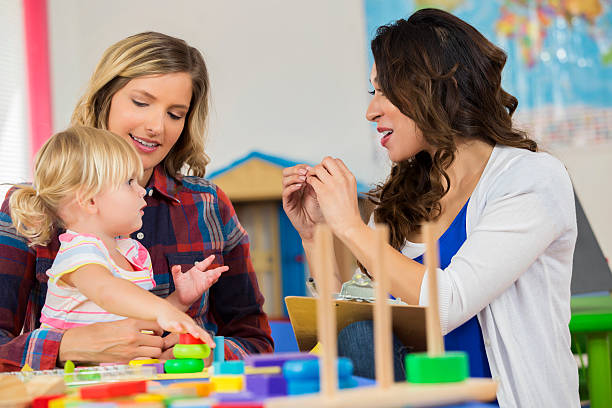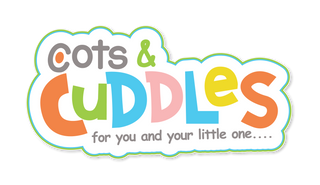Introduction:
Language development refers to the process by which infants and toddlers acquire the ability to understand, produce, and use language to communicate effectively. It involves the gradual progression from simple sounds and gestures to the complex skills of vocabulary expansion, sentence formation, and comprehension of spoken and written language.
During language development, children go through various stages and milestones. Initially, they engage in pre-linguistic communication through non-verbal means such as crying, cooing, and babbling. As they grow, they start using meaningful words, combining them to form short phrases, and eventually constructing more complex sentences.
Language development encompasses several key components:
1. Phonology: This involves acquiring and producing the sounds of a particular language. Babies learn to distinguish between different sounds and eventually develop the ability to produce them correctly.
2. Vocabulary: As language progresses, children acquire an increasing number of words, expanding their vocabulary. They learn the meaning of words and how to use them in context.
3. Syntax: Syntax refers to the rules that govern how words are combined to form grammatically correct sentences. Children gradually develop an understanding of sentence structure, including word order, verb tense, and grammar rules.
4. Semantics: Semantics involves the understanding and use of word meanings. Children learn to comprehend and express the meaning of words and concepts, allowing for effective communication.
5. Pragmatics: Pragmatics refers to the social and cultural rules of language use. It includes understanding and appropriately using language in different contexts, such as greetings, turn-taking, using polite language, and understanding non-verbal cues.
Language development is a remarkable journey in a child's early years, shaping their ability to understand and express themselves. For mothers of toddlers, particularly those between the ages of 1 and 2, this period can bring both joy and challenges. As a parenting specialist, it is crucial to address the common issues faced by mothers during this critical phase of language development and provide guidance to support their little one's linguistic growth. Language development refers to the process through which infants and toddlers acquire the ability to comprehend and communicate using words, gestures, and sounds. It is an essential aspect of overall development as it influences cognitive skills, emotional expression, social interaction, and future academic success. As children grow, they reach significant milestones in their language journey, such as babbling, first words, vocabulary expansion, and the emergence of two-word combinations.
However, many mothers may encounter difficulties along the way. One of the challenges is delayed language development, where toddlers may not reach language milestones within the expected timeframe. Late language development can be caused by various factors, including hearing impairments, developmental disorders, or simply individual differences in the pace of development. Identifying potential red flags and seeking appropriate professional help is crucial for timely intervention. Speech articulation issues are another common problem faced by mothers. Children may struggle with pronouncing certain sounds or exhibit speech clarity issues such as lisping. While some speech difficulties are part of normal development, persistent challenges may require intervention from a speech therapist to ensure proper articulation and clarity.

Vocabulary expansion is also an area where mothers may face challenges. Some toddlers may have a slower vocabulary growth than expected, which can lead to concerns about their language skills. However, with practical strategies and consistent efforts, mothers can actively support their child's vocabulary development through everyday activities and enrich their word bank. To assist mothers in fostering their child's language development, it is vital to create a language-rich environment. By reading, talking, and singing to their little ones, mothers can provide valuable exposure to language and stimulate their linguistic abilities. Engaging in conversations and narratives helps toddlers develop conversational skills, while incorporating storytelling enhances their narrative and language comprehension skills.
Furthermore, utilizing language-building activities such as rhyming, singing, and interactive play with language-focused toys can be highly beneficial. Additionally, age-appropriate language-building apps and resources can supplement these activities, offering an engaging and educational platform for language development. In conclusion, understanding the intricacies of language development and the challenges faced by mothers of toddlers. By providing guidance and practical tips to support language growth, mothers can actively contribute to their child's linguistic journey. Patience, love, and support are key ingredients as each child develops at their own pace on this exciting path of language development.
Understanding Language Development in Babies

1.1: Definition and Importance of Language Development
Language development is a remarkable process through which infants and toddlers acquire the ability to understand and communicate using words, gestures, and sounds. It encompasses both receptive language (comprehension) and expressive language (production). This developmental milestone holds significant importance in a child's life as it forms the foundation for cognitive skills, emotional expression, social interaction, and future academic success.
Language development begins early, even before a baby's first words, as they listen to the sounds around them and start to make connections between words and meanings. As they grow, babies start producing babbling sounds, imitating the speech they hear, and gradually progress to using single words, two-word combinations, and eventually full sentences.
1.2: Milestones in Language Development
Understanding the typical milestones in language development for babies helps parents gauge their child's progress and identify potential areas of concern. It's important to note that each child develops at their own pace, and slight variations are normal.
During this period, babies exhibit a range of language milestones, including:
- Babbling: Around 6-8 months, babies begin to produce repetitive consonant-vowel syllables, such as "ba-ba" or "da-da."
- First Words: Typically, between 10-14 months, babies utter their first recognizable words, often related to important people or objects in their immediate environment.
- Vocabulary Growth: From 12 to 18 months, babies start adding more words to their repertoire, with a vocabulary of approximately 50 words by the age of 18 months.
- Two-Word Combinations: Between 18-24 months, toddlers progress to combining two words to express simple ideas or requests, such as "more milk" or "big ball."
Common Challenges Faced by Mothers

2.1: Late or Delayed Language Development
One of the significant challenges mothers may face is when their child exhibits late or delayed language development. Late language development refers to a situation where a toddler's language skills progress at a slower pace compared to their peers. It is essential for mothers to be aware of potential red flags indicating a language delay, such as limited vocabulary, difficulty understanding or following instructions, or minimal use of words or gestures.
Several factors can contribute to late language development, including:
- Environmental Factors: Lack of exposure to language-rich environments, limited opportunities for social interaction, or minimal verbal stimulation can hinder language development.
- Hearing Impairment: Undetected or untreated hearing problems can significantly impact a child's ability to develop language skills.
- Developmental Disorders: Certain developmental disorders, such as autism spectrum disorder or intellectual disabilities, can be associated with language delays.
If mothers suspect their child is experiencing a delay in language development, it is crucial to consult with a healthcare professional or a speech-language pathologist. Early intervention and appropriate strategies can help address these challenges and support the child's language growth.
2.2: Speech Articulation Issues
Mothers may encounter challenges when their toddlers experience speech articulation issues, which involve difficulty pronouncing certain sounds or syllables. Common speech articulation problems include lisping (substituting "s" or "z" sounds with "th" sounds) or difficulty with specific consonants or vowels.
It is essential for mothers to be aware of age-appropriate speech sounds and monitor their child's progress. While some speech sound errors are typical during early language development, persistent and severe difficulties may require professional intervention.
If mothers notice that their child's speech clarity or pronunciation is significantly different from their peers, it is recommended to consult with a speech-language pathologist. These professionals can provide assessment, diagnosis, and appropriate therapeutic techniques to address speech articulation issues.
2.3: Limited Vocabulary Expansion
Another common challenge mothers face is when their child's vocabulary growth is slower than expected. While it's normal for vocabulary acquisition to vary among children, a consistently limited word bank may cause concerns.
To support vocabulary expansion, mothers can engage in various strategies:
- Exposure to Rich Language: Providing a language-rich environment by talking to the child frequently, reading books aloud, and exposing them to a variety of words and concepts.
- Contextualized Learning: Associating new words with relevant objects or experiences can help toddlers grasp and remember vocabulary more effectively.
- Repetition and Reinforcement: Repeating words in different contexts, using gestures or visuals, and reinforcing new vocabulary during play or daily routines.
Tips for Supporting Language Development

3.1: Creating a Language-Rich Environment
Creating an environment that is conducive to language development is essential for toddlers. By immersing them in a language-rich setting, you can greatly enhance their language skills and abilities. Here are some strategies to consider:
-
Read Aloud: Make reading a daily habit. Read aloud to your child, pointing to pictures, and discussing the story. This helps them build vocabulary, comprehension, and listening skills.
-
Talk, Talk, Talk: Engage in conversations with your toddler throughout the day. Describe the things you see, hear, and do together. This provides them with valuable language input and helps them learn new words and concepts.
-
Sing and Rhyme: Singing songs and reciting rhymes exposes your child to the rhythmic patterns and sounds of language. This improves their phonological awareness, a vital skill for later reading and writing.
-
Label Objects: Label items around the house, such as furniture, toys, and household items. This helps your child associate words with objects and reinforces their understanding of language.
-
Provide Choices: Give your toddler choices and encourage them to express their preferences using words. This boosts their language skills and decision-making abilities.
3.2: Engaging in Conversations and Narratives
Engaging in meaningful conversations and narratives with your toddler is an excellent way to support their language development. Here are some tips to encourage rich communication:
-
Active Listening: Give your full attention when your child speaks and respond appropriately. This conveys the importance of their words and encourages them to communicate more.
-
Ask Open-Ended Questions: Instead of yes-or-no questions, ask open-ended questions that require your child to provide more detailed answers. This stimulates their language skills and encourages them to express their thoughts.
-
Expand and Extend: When your child says a sentence, expand on it by adding a few more words or extending their sentence. For example, if they say, "Doggy run," you can respond with, "Yes, the brown doggy is running so fast!"
-
Tell Stories: Share stories with your child, whether from books or from your imagination. Encourage them to contribute to the story by asking questions and making predictions. This develops their narrative skills and sparks their creativity.
3.3: Utilizing Language-Building Activities
Engaging your toddler in fun and interactive language-building activities can significantly contribute to their language development. Here are some ideas to try:
-
Puzzles and Games: Choose puzzles and games that involve language, such as picture matching games or memory games with words. These activities enhance vocabulary, memory, and cognitive skills.
-
Language-Focused Apps: Explore age-appropriate educational apps that are specifically designed to promote language development in young children. Look for apps that offer interactive activities, storytelling, and vocabulary-building exercises.
-
Role-Play and Pretend Play: Encourage your child to engage in role-playing and pretend play scenarios. This helps them practice using language in different contexts and promotes imaginative thinking.
-
Cooking and Baking: Involve your toddler in simple cooking or baking activities. Talk about the ingredients, describe the steps, and encourage them to express their preferences. This not only supports language development but also enhances their sensory and fine motor skills.
Conclusion:
Language development is a complex and remarkable process that unfolds uniquely for each child. As mothers of toddlers, understanding the milestones, challenges, and effective strategies to support language growth is essential in fostering their child's linguistic journey. By creating a language-rich environment, mothers can provide a foundation for language development. This includes reading books, talking about daily experiences, and singing songs with their little ones. These activities expose babies to a rich vocabulary, help them make connections between words and objects, and develop their listening skills.
Engaging in meaningful conversations and narratives is another powerful way for mothers to support their child's language development. Taking the time to have back-and-forth conversations, actively listening to their toddler's attempts at communication, and responding with interest and encouragement can have a profound impact. It not only enhances their language skills but also strengthens their social and emotional connections. Utilizing language-building activities adds a fun and interactive element to language development. Activities such as rhyming games, singing nursery rhymes, and playing with language-focused toys can spark a child's curiosity and imagination. Additionally, age-appropriate language-building apps and resources can provide further opportunities for learning and engagement.

It's important to remember that each child develops at their own pace, and some may face specific challenges along the way. If mothers notice signs of late or delayed language development, speech articulation issues, or limited vocabulary expansion, seeking guidance from a speech therapist or pediatrician is advisable. Early intervention and professional support can make a significant difference in addressing any concerns and providing appropriate strategies for improvement. Throughout this exciting journey of language development, patience, love, and support are key. Celebrating each milestone and recognizing the progress made, no matter how small, can boost a mother's confidence and her toddler's self-esteem. Every effort made to promote language development contributes to a child's overall cognitive, emotional, and social well-being.
In conclusion, as mothers of toddlers, embracing the opportunity to be language development facilitators is both rewarding and vital. By creating a language-rich environment, engaging in conversations and narratives, and utilizing language-building activities, mothers can help their children thrive in their communication abilities, setting them on a path for success in their future language skills and overall development. Embrace this journey, enjoy the precious moments, and savor the joy of witnessing your child's language flourish.

